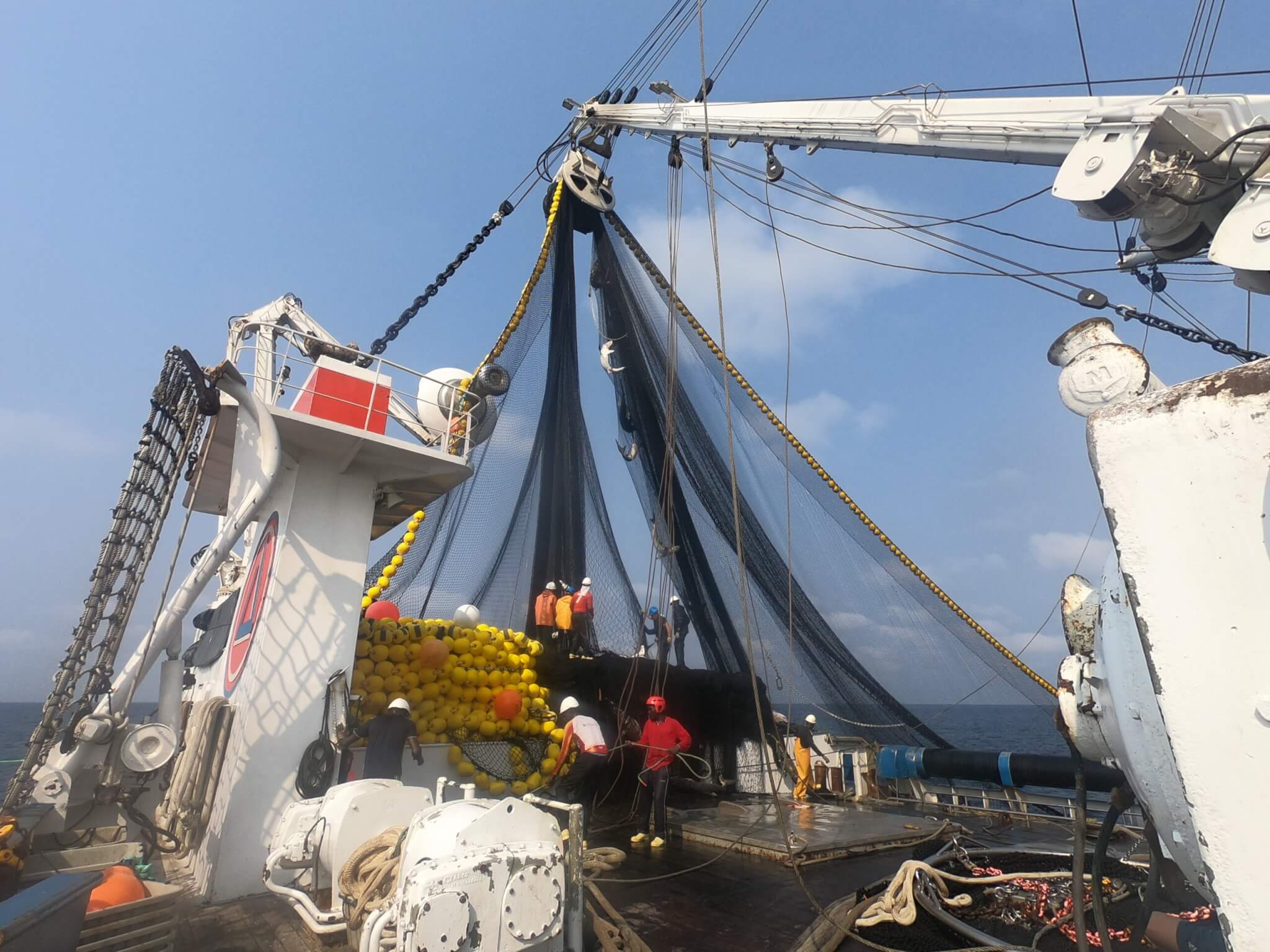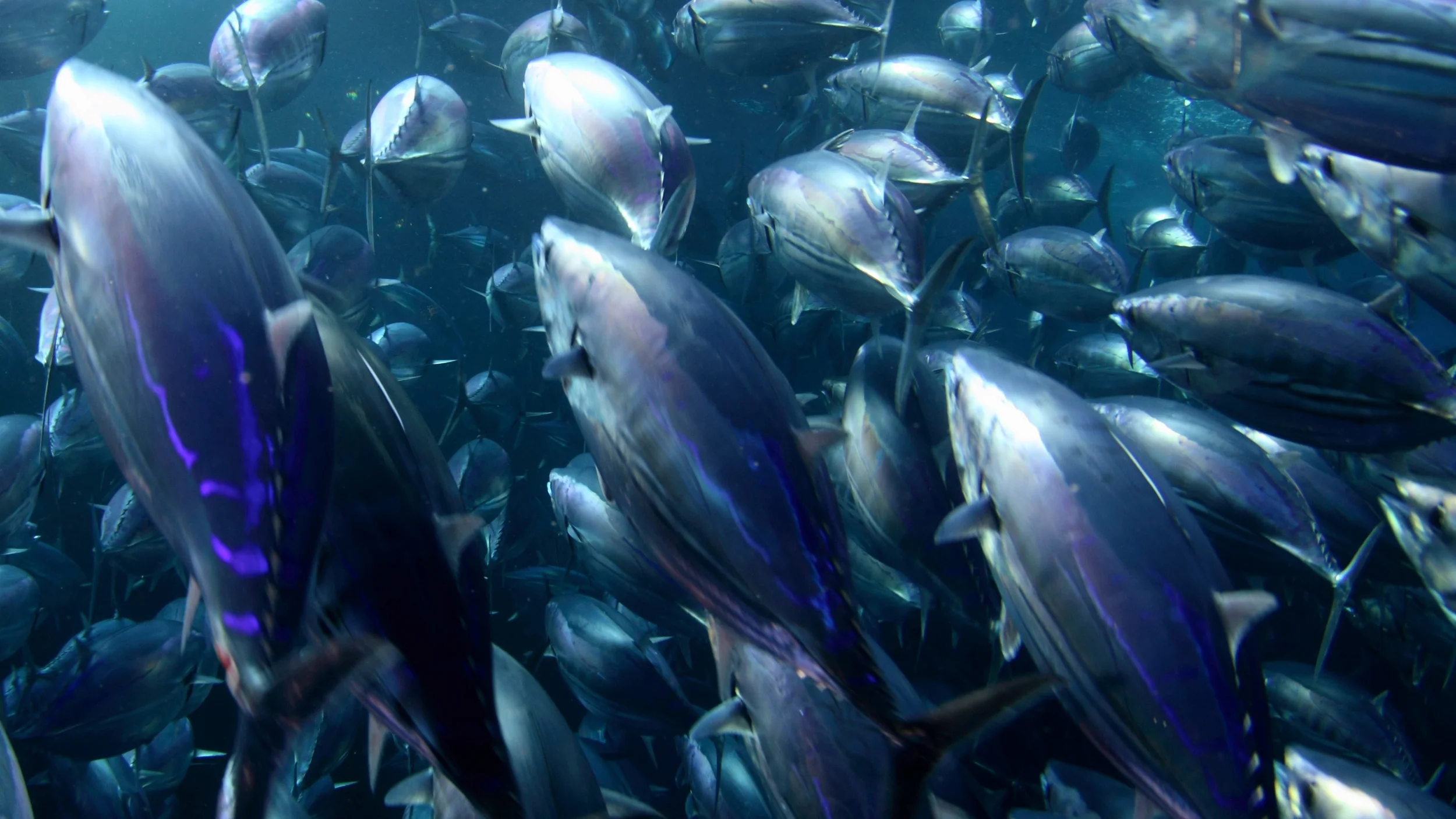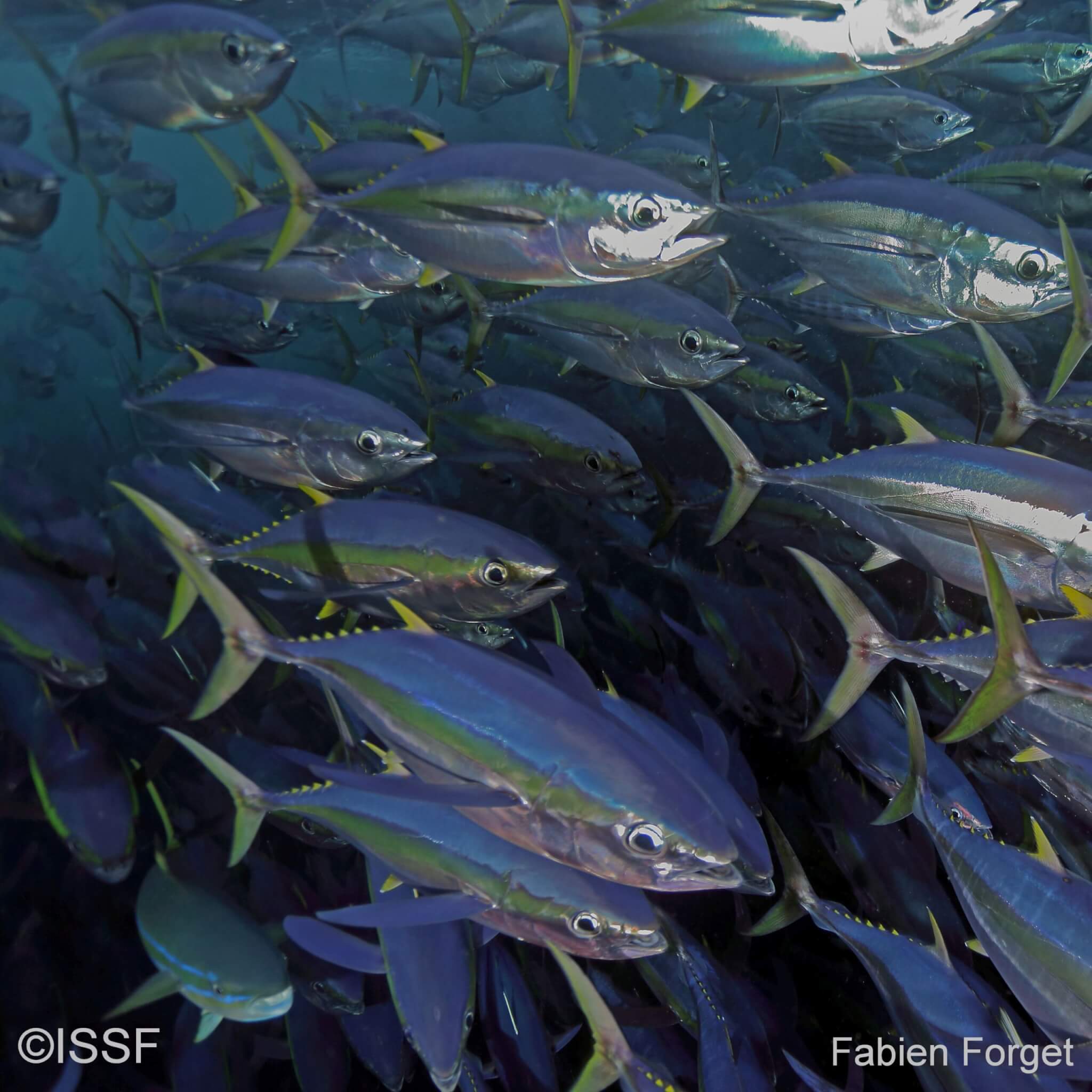
Mixed Results at ICCAT 2025: Skipjack Management Procedure Adoption Marks Progress, Other Key Reforms Slip to 2026 and Beyond
As ICCAT concludes its 2025 annual meeting in Seville, the International Seafood Sustainability Foundation (ISSF) offers a measured assessment of the outcomes. While the Commission made meaningful progress in some areas, particularly on harvest strategies, many issues central to achieving fully monitored and accountable fisheries were deferred to intersessional work in 2026 and beyond. Intense time spent on bluefin tuna quota negotiations also limited the Commission’s ability to advance other priority reforms.
Below we evaluate the results of the meeting through the lens of the priorities highlighted in our October ICCAT preview: finalizing harvest strategies, scaling up electronic monitoring and observer coverage, and advancing bycatch mitigation and shark conservation.
Progress on Finalizing Harvest Strategies for Key Stocks
The highlight of the 2025 meeting was ICCAT’s adoption of a management procedure (MP) for western Atlantic skipjack — a significant milestone and one of our top priorities. MPs, also known as harvest strategies, form the backbone of modern, science-based fisheries management by establishing pre-agreed decision rules that respond predictably and transparently to changing stock conditions.
With this adoption, ICCAT adds western Atlantic skipjack to a growing suite of stocks managed through harvest strategies, joining Atlantic bluefin stocks, northern albacore, and North Atlantic swordfish. The Commission continues to lead among tuna RFMOs in the transition to evidence-driven, precautionary management systems.
Looking ahead, ISSF encourages ICCAT to maintain momentum by:
- Advancing intersessional work on tropical tuna harvest strategies, with priority attention to yellowfin and bigeye
- Using the 2026 stock assessment for southern Atlantic albacore to advance the MP evaluations for that stock
A Miss for Electronic Monitoring and Observer Coverage
Despite growing global momentum toward improved monitoring levels in tuna fisheries, ICCAT did not make substantive advances this year on electronic monitoring (EM) or human observer coverage. Minimum observer levels remain unchanged, and the Commission did not set a timeline toward achieving 100 percent monitoring for industrial tuna fisheries — including during at-sea transshipment events.
This lack of progress is concerning. EM systems are now widely available, improving data quality and supporting accountable, science-based management. ISSF will continue to work with ICCAT parties to build implementation capacity, share best practices, and support comprehensive monitoring across fleets.
Progress was made to more fully align ICCAT’s port State measures recommendation to the FAO Port State Measures Agreement. And ICCAT further refined and streamlined its compliance process — important steps forward, and ones for which ISSF and its stakeholders advocated.
Mixed Outcomes for Advancing Bycatch Mitigation and Shark Conservation
Although ICCAT considered a wide range of shark and bycatch proposals, overall progress was limited, with only a few targeted advances and several important reforms postponed to next year.
Shortfin Mako Sharks: A Step Forward for the South Atlantic, but Gaps Remain
ICCAT adopted a new measure for South Atlantic shortfin mako sharks that establishes a 1,000 t mortality limit, covering landings and dead discards. This represents a meaningful reduction from recent catch levels and reflects improved alignment with scientific guidance. However, significant concerns remain regarding monitoring, total mortality accounting, and implementation. For the North Atlantic stock, ICCAT did not modify the existing measure. A full retention ban continues to be the most precautionary, science-based approach to promote recovery, and ISSF encourages the Commission to maintain and strengthen measures for both stocks as new scientific advice becomes available.
Other Shark Measures
Despite growing global agreement on “fins naturally attached” (FNA) as the most effective and enforceable tool for preventing finning, ICCAT once again did not adopt an FNA requirement. Modernizing ICCAT’s finning regulation remains a critical priority for 2026 to ensure accurate species-specific landings data and robust enforcement.
ICCAT adopted new protections for two vulnerable species, basking sharks and great white sharks, by prohibiting their retention, transshipment, and landing when caught in ICCAT fisheries. While these measures are welcome, broader reforms to improve shark bycatch recording, mitigation, and management were deferred to intersessional work.
No Progress on Updating Outdated Seabird Measures
As highlighted in our October preview, ISSF urged ICCAT to modernize its outdated seabird mitigation measure and task its scientists with reviewing updated best-practice techniques. The Commission did not take these steps, and seabird conservation remains an important gap to address.
Looking Ahead
The 2025 ICCAT meeting produced a mix of achievements and missed opportunities. The adoption of the western Atlantic skipjack MP represents important progress toward science-based management. At the same time, delays on electronic monitoring, observer coverage, tropical tuna harvest strategies, and shark and seabird conservation highlight the need for greater urgency in 2026.
To meet scientific advice and increasing market expectations for accountability and transparency, ICCAT must accelerate its work on:
- Advancing the harvest strategy portfolio
- Scaling up EM and observer coverage
- Modernizing shark and seabird measures to meet scientific best practice
ISSF remains committed to supporting CPCs in these efforts. Through collaborative research, best-practice guidance, and ongoing engagement with industry, scientists, and NGOs, we will continue working to help ICCAT translate momentum into meaningful, measurable improvements for tuna stocks, ecosystems, and fishing communities across the Atlantic.


